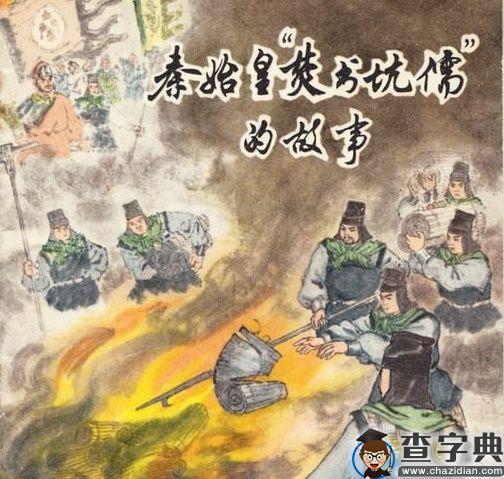
The Power of Words: Qin Shihuangdi and the Resilience of Dissent
Introduction
The reign of Qin Shihuangdi, China's so-called First Emperor, was a time of immense change and upheaval. He unified China for the first time, standardized weights and measures, and built the Great Wall. Yet, he is also infamous for his brutal suppression of dissent, exemplified by the infamous story of the buried scholars. This act, intended to silence criticism and solidify his power, ironically reveals the enduring power of scholars and writing, even in the face of tyrannical repression.
Qin Shihuangdi's Monopoly on Writing and the Burning of Books
To consolidate his power and implement his vision of a unified China, Qin Shihuangdi sought to control not only the physical territory but also the intellectual landscape. He believed that differing schools of thought led to instability and challenged his authority. This belief motivated him to implement a series of draconian measures, collectively known as the "Burning of Books and Burying of Scholars."
He ordered the destruction of all texts that did not align with Legalism, his chosen philosophy for governance. This included works of history, philosophy, literature, and poetry from different schools of thought, effectively erasing centuries of intellectual discourse. To ensure compliance, he made the possession of banned texts a capital offense. This act of cultural vandalism was intended to stifle dissent at its root, eliminating any competing narratives or ideologies.
The Burying of Scholars: A Brutal Act of Censorship
Central to this narrative of repression is the story of the buried scholars. Accounts vary, but the most enduring version describes hundreds of scholars, critical of the emperor's policies, being buried alive. This act, shrouded in historical debate about its accuracy and scale, has come to symbolize the brutal lengths to which Qin Shihuangdi was willing to go to silence opposition.
The scholars, often depicted as Confucianists, represented a direct challenge to Qin Shihuangdi's authority. Their knowledge, particularly their understanding of history and their ability to articulate alternative visions of governance, posed a threat to his absolute rule. By burying them alive, he aimed to make a chilling example of what happened to those who dared to question his regime.
The Resilience of Ideas: How Writing Continued to Thrive
Despite the horrific nature of these events, Qin Shihuangdi's efforts to extinguish dissent ultimately failed. His monopoly on writing materials, intended to track and eliminate critical voices, could not contain the power of ideas. The very act of suppression, particularly the dramatic imagery of the buried scholars, became a rallying point for opposition.
Scholars, recognizing the danger of openly criticizing the emperor, resorted to clandestine methods. Texts were copied and hidden, passed down through families or trusted networks. Oral traditions flourished, with stories and criticisms of the Qin regime woven into songs and folktales. This underground network of knowledge ensured that despite the state-sanctioned destruction, the flame of intellectual discourse continued to burn.
Conclusion: The Legacy of Qin Shihuangdi and the Power of the Pen
The story of Qin Shihuangdi's suppression of dissent is a stark reminder of the enduring power of words and ideas. While his reign exemplifies the brutal lengths to which power will go to silence opposition, it also highlights the resilience of the human spirit and its determination to express itself.
The legacy of the buried scholars serves as a powerful symbol of the importance of intellectual freedom and the courage required to defend it. It reminds us that true power does not lie in silencing dissenting voices, but in fostering an environment where ideas can be freely debated and challenged. The pen, in the hands of a scholar, can be mightier than the sword, as it has the power to inspire change, challenge authority, and keep the flame of knowledge burning even in the darkest of times.
Q&A
1. What was the main goal of Qin Shihuangdi's policies regarding writing and scholars?
Qin Shihuangdi's primary aim was to consolidate his power and create a unified China under his absolute rule. He believed that dissenting schools of thought threatened his authority and sought to eliminate them by controlling the intellectual landscape through book burnings and persecution of scholars.
2. How did the story of the buried scholars become a symbol of resistance?
Despite its intended aim of instilling fear, the brutal act of burying scholars alive backfired. It became a rallying point for opposition, highlighting the emperor's tyranny and emphasizing the importance of protecting intellectual freedom.
3. Why did Qin Shihuangdi's efforts to control writing ultimately fail?
Qin Shihuangdi underestimated the power of ideas and the determination of individuals to express them. His repressive measures, though harsh, could not eradicate the desire for knowledge and free thought, which continued to flourish through clandestine networks, oral traditions, and acts of defiance.
note: This return of all, without the author's permission, may not be reproduced